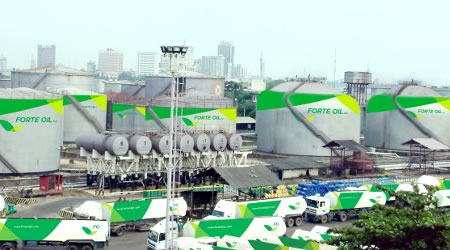The company said the PAT from continuing and discontinued operations increased by 93 per cent to N 7.9 billion compared to N4.11 billion recorded for the same period in H1 2017, earnings per share grew by 47 per cent to N1.54 compared to N1.05 recorded for the same period in H1, 2017.
Revenues increased by 32 per cent to N61.8 billion compared to N46.7 billion recorded for the same period in H1, 2017. Total Assets grew by 4 per cent to N153 billion compared to N147 billion recorded for the same period in H1 2017.
Forte Oil said the first half of 2018 witnessed a more stable operating environment with higher oil prices, foreign exchange availability and improved petroleum product supply across the country.
“As a company, we commenced our strategic plans and initiatives to re-examine our business model and optimizing our balance sheet through asset disposal and expansion of our downstream operations in Nigeria.
“In May 2018, we obtained the approval of the board and shareholders at the 39th annual general meeting to pursue our divestment initiatives and the company commenced the process to divest its interest in power, upstream services, and marketing in Ghana (APOG). As at 30 June 2018, these subsidiaries were classified as disposal groups held for sale and as discontinued operations,” the company said.
The company added that despite the operational challenges and discontinued operations, the company recorded 32 per cent growth in revenues, translating to N61.8 billion, compared to N46.7 billion in H1, 2017 as a result of improved product supplies.
While administrative expenses reduced by nine per cent from N3.82 billion recorded in H1, 2017 to N3.48 billion in H1, 2018. It disclosed that the business suffered from huge interest cost occasioned by the non-payment of subsidy, interest and foreign exchange differential, saying that “this we believe would be reduced or eliminated with the disposal of the subsidiaries and eventual payment of the subsidy.
“Looking ahead, we shall focus on the continuing operations, the Nigerian downstream business as we continue to drive growth through our expansion drive, backward integration, cost optimization and the injection of capital through the asset sale to shore up working capital and reduce finance cost.”






